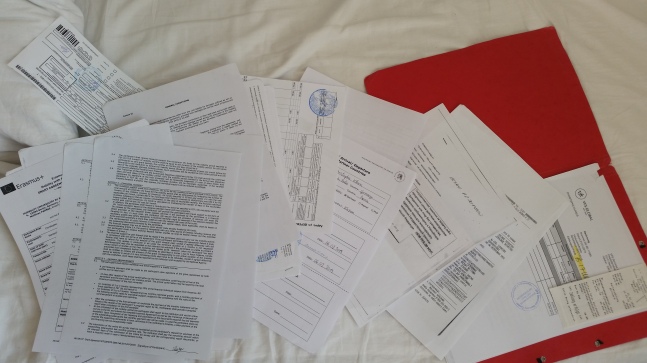Russia has this weird tendency to always be a little strange. This even applies to other spheres of life that one wouldn’t think of straight away. This weekend I had the extraordinary pleasure of experiencing my first short-distance hitchhiking trip: to the Raifa monastery. While the destination was but 30 minutes away by car, it already served as staff gauge for further upcoming trips. I was accompanied by a German girl, Sophia, who lived most of her life in a city right across the Mosel River, so basically in visual range to Luxembourg – I had to travel all the way to Kazan to meet my neighbour.

Raifa monastery has little amazing to offer to its visitors. It has the typical white-stoned walls, its golden cupola, the brightly and positive religious fresco that cover every single inch of the inner walls and, last but not least, it’s golden, shiny icons. And I may not be an expert on the matter, but I’d claim, that some icons value more highly than others. This is, some shine brighter than others, have been blessed zealously than others thus increased in magical/spiritual powers (how much mana must a priest or bishop invest to get a +10 Protection for Relatives bonus?) and show a different holy person or wise man. Even though I do not possess a picture to prove my testimony, there was a literal queue waiting to touch and even kiss an icon of Maria with Son. And the religious fervency with which they (i.e. especially women with children or babushki) threw themselves at a representation of holy people that no one has set an eye upon within the last 2000 years, made me question the rationality of these fine and humble people. Even on a different level, would it not be sufficient to carry the belief in one’s heart, rather than to spread it with ones lips on a picture that has been touched by thousands before? Is it not a little silly and hypocritical that one prays for a child that serves in the army (e.g.), rather than to make sure, that war isn’t a necessity at all? Would an active, defensive position not achieve more than putting ones trust in a being/spirit/dream and sometimes nightmare, that does little more than listen?
After witnessing this
One more detail in the monastery that startled me before turning to hitchhiking. What are monks supposed to do while living behind holy walls, untroubled by modern hysteria? Praying for oneself and meditating can be arduous work, since one will sooner or later encounter a bottleneck and run out of ideas. Therefore, one has established a place, where children can spend their time and listen to the dramatic and fascinating stories of their favourite biblical heroes or visit a military cemetery (spreading the word of God requires modern technology). Plus, if the children are gone to play with army equipment, yet one still has no time to worship our Lord, one can leave a small tip in the monastery; a monk will take over the labour and invest all of his magical power in protecting ones relatives before the evil forces.
A small note on hitchhiking in Russia: It’s working perfectly fine! Though we didn’t travel far away from the city, a no point did we wait more than 10 minutes and each driver was unique in a very specific way. However, the second car that helped us managing the final part of the road to the monastery was of greatest interest, as the driver was either suspicious or unwilling to helping us; it was but thanks to his passenger, who he picked up along the road as well, that he stopped. The passenger, however intrusive he might have seemed, promptly invited us to beer and sausages and was very keen on learning more about us foreigners, traveling to Russia, for he appeared to be blissfully astonished to hear this; especially, as he wondered whether Europe was cleaner than Russia (interesting comparison anyway). He was so absorbing in his manner, than he immediately succeeded in convincing the unaware driver to made a minor detour to the monastery, where the eventually left us off.
Our return to the city of Kazan was guaranteed by a former Танкист, a tank driver, who had served in the former GDR – it is very common for me to meet former soldiers while hitchhiking, who had all served in Socialist Germany for some years and who, without exception, all adored the German beer – and was on his way home.

Our voyage ended back in the city of Kazan, where we were greeted by a world, completely opposite from the one that we had just left: Welcome back to Soviet Union!














